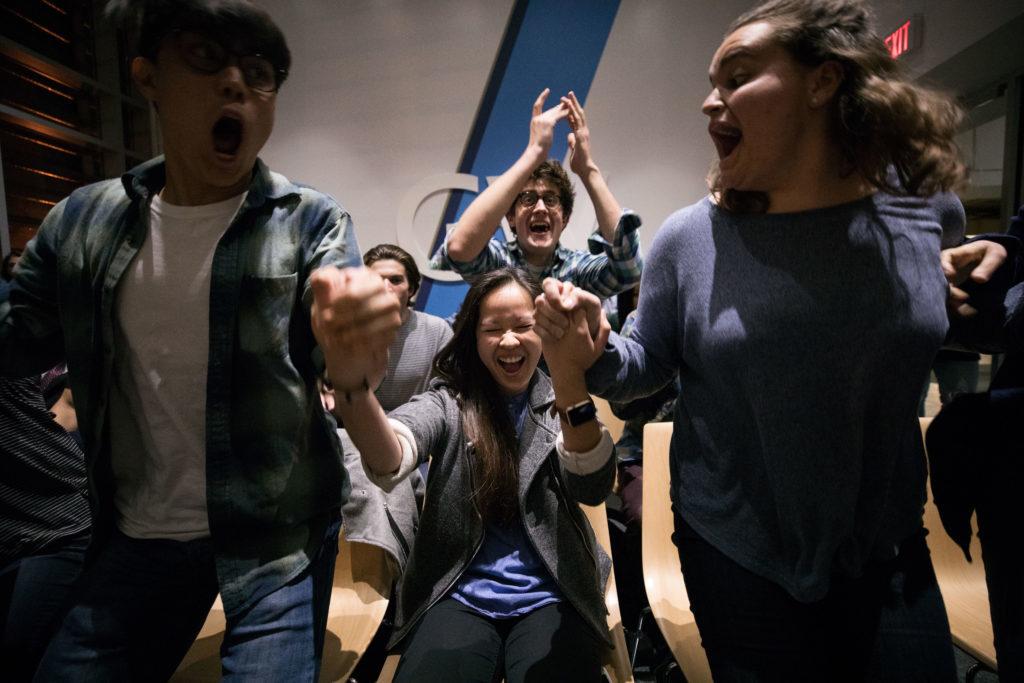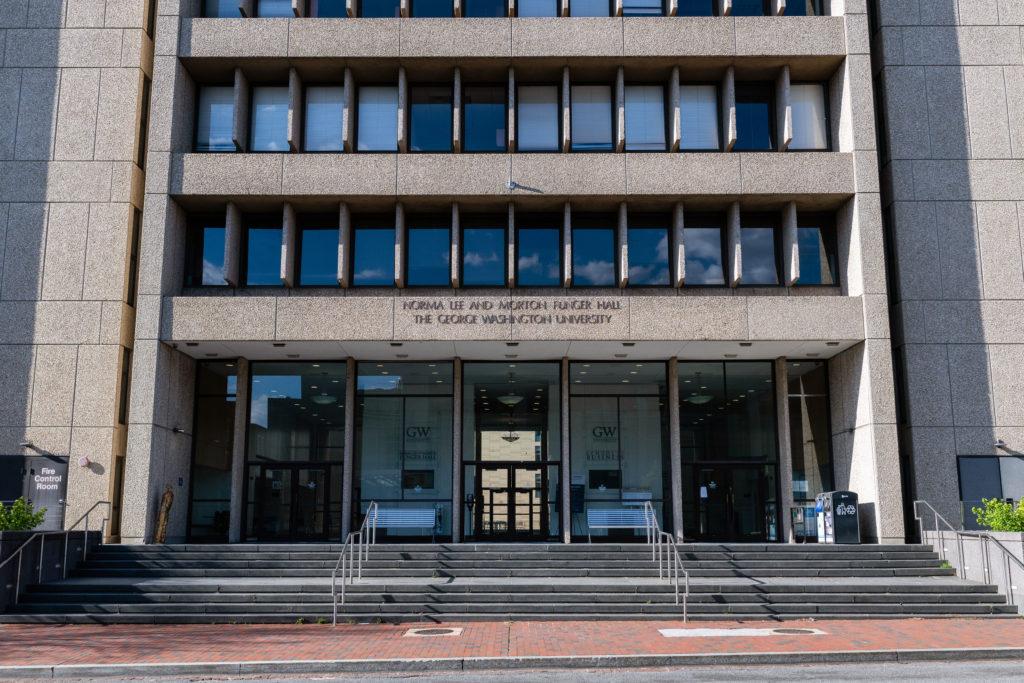Updated: March 29, 2018 at 7:33 p.m.
Junior Ashley Le was narrowly elected Student Association president Wednesday with about 51 percent of the vote.
Le, who will be the first female Asian-born SA president in recent history, ran on a platform focused on implementing a mandatory first-year course on diversity and campus resources, allowing students to take an 18th credit without paying an added fee and expanding community service opportunities.
“From the bottom of my heart, I cannot describe how honored I feel right now,” Le said in an interview after the result. “This is not something that everyone can get. This is an opportunity that’s once in a lifetime.”
Le currently serves as the SA vice president for public affairs and last year was the director of information technology. Throughout this academic year, she has led the SA’s promotional efforts and in the fall helped organize a campaign, pegged GW Responds, to fundraise for students affected by Hurricane Harvey in Texas.
She beat out her opponent, junior Imani Ross, by 232 votes in one of the closest presidential races in recent history.
Ross declined to comment after the results were announced.
Students cast 4,187 ballots this year, about one and a half times as many as last year’s 2,747 votes in an election without a presidential race and about 1,300 less than the record 5,456 votes cast in 2015.
Sophomore Ojani Walthrust also overwhelmingly won his bid for executive vice president capturing about 71 percent of the vote. Walthrust is currently an undergraduate senator for the Elliott School of International Affairs.
“I finally have a bigger say to represent underrepresented communities,” Walthrust said. “I’ve done it currently, but I have more people to represent now and I’m so content about that.”
Walthrust’s opponent, doctoral student Brady Forrest, was hit with accusations of anti-Semitism Monday, less than 12 hours before polls opened. A student resurfaced two Facebook posts from 2014 in which Forrest called for a boycott of a multicultural event for including Jewish student organizations who Forrest said supported Israeli military actions in Gaza, drawing swift backlash from student leaders.
Forrest, who was not present at election announcements, received just 854 votes.
The student body overwhelmingly voted in favor of a referendum calling on the University to allow students to take an 18th credit each semester without paying an added tuition fee. Currently, most students can only take 17 credits and must pay about $1,500 to take an extra credit.
About 96 percent of the student body said they supported the measure, while 54 percent indicated they would take advantage of the extra credit if the University changed its policy.
Students also voted against implementing a $1 per credit hour fee to fund major campus events like concerts, speakers and activities. About 56 percent of students rejected the fee, which was introduced as a referendum by Program Board.
In a second referendum introduced by Program Board, students said they would rather see fewer events campus with high-profile speakers and artists instead of more events with speakers and artists of the current stature.
The student body also voted in favor of two referendums making internal changes to the SA – the first elevates the director of sustainability policy position to a vice presidential post, and the second allows freshman and first-year graduate senators to vote during their second semester in the senate.
This post was updated to reflect the following correction:
Due to incorrect information from the JEC, The Hatchet incorrectly reported the total number of votes cast and the margin of victory in the presidential race. Both of those figures are now correct.








